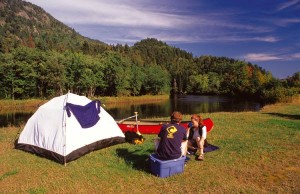 Camping is one activity that can be enjoyed by children and adults alike. Whole families indulge in this activity, scouts have their own camping trips and friends can bond over a round of stories over the camp fire. But small injuries can ruin an otherwise perfect camping trip, especially if there’s no First aid and CPR courses that’s stocked with the necessities for treating simple injuries.
Camping is one activity that can be enjoyed by children and adults alike. Whole families indulge in this activity, scouts have their own camping trips and friends can bond over a round of stories over the camp fire. But small injuries can ruin an otherwise perfect camping trip, especially if there’s no First aid and CPR courses that’s stocked with the necessities for treating simple injuries.
While first aid kits are available in any pharmacy, you can customize it and save money at the same time by making your own.
How to Stock a First Aid Kit
First aid and CPR courses not only teach people what to do during emergencies, it also underlines the importance of being flexible and creative. As such, the contents of a typical first aid kit and how to make your own is often discussed in first aid courses.
- Stock up on basic bandage items like blister pads, sterile gauze, elastic bandages for sprains and medical tape. Adhesive bandages of different sizes should be included as well as triangular bandages that are needed to create slings or to keep dressings in place.
- Include items that can sterilize wounds and prevent infection. Make sure your first aid kit has cotton balls, cotton swabs, alcohol wipes, anti-bacterial cream and sanitizing gel.
- Make sure there’s a good variety of over-the-counter meds in your kit. Medicines that should always be included are allergy medications like antihistamine, pain killers and medicines for diarrhea, fever, heartburn and nausea. Sprays and creams should also be included along with the medicines. Put anti-itch creams, petroleum jelly and sprays for burn relief in your kit.
- Common medical tools and instruments should have a place in your medical kit. Don’t forget to include a digital thermometer, a magnifying glass, safety pins, scissors and tweezers. Finish up by adding essential items like a first aid manual, sterile gloves and a small flashlight.
How to Assemble a First Aid Kit
- Choose a compact and watertight container. This can be anything, from a large zipbag to a plastic container with a tight lid. Make sure to choose a container that fits the camping that you’ll be doing. For instance, a backpacking trip might call for a ziplock bag over a square, plastic container that might not fit in your bag.
- Place first aid supplies into ziplock bags or any bags that can be closed. Sort and organize supplies so everything that might be needed for a specific situation are all in one bag. For instance, adhesive bandages, sterile gloves and the antibacterial cream can all be placed in one bag.
- Label each bag clearly so you won’t spend precious time searching for what’s needed.
- Place the bags in your waterproof container and secure the lid.
Having a well-stocked first aid kit will give you peace of mind and help make camping trips an enjoyable and memorable experience. It would also be a good idea to have first aid training, especially if camping is something that’s an integral part of your life. Knowing what to do during emergencies can be an immeasurable help during unforeseen emergencies that you might encounter while camping.
